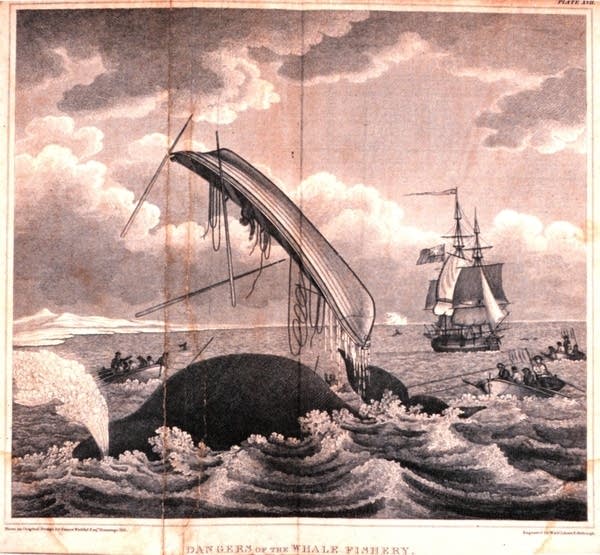It really happened: Five true stories turned into novels

Go Deeper.
Create an account or log in to save stories.
Like this?
Thanks for liking this story! We have added it to a list of your favorite stories.
From serial killers to killer whales, these authors plucked inspiration from the past.
Five novels based on incredible true stories
Turn Up Your Support
MPR News helps you turn down the noise and build shared understanding. Turn up your support for this public resource and keep trusted journalism accessible to all.
1) "Quiet Dell" by Jayne Anne Phillips

Quiet Dell is a small town in West Virginia with a dark legacy: In the 1920s, it was home to the serial killer Harry Powers. Powers lured victims through personal ads placed in Lonely Hearts Magazine.
His ads drew quite the response. According to The Charleston Gazette, Powers received 10 to 20 letters a day from women looking for love. Those he responded to, however, weren't in for a happy ending.
His crimes were uncovered in 1931 and he was hanged in 1932.
Phillips' novel transforms Powers' victims from historical footnotes into fully fleshed-out characters. She imagines the lives that led each of them down the fateful path to Quiet Dell.
2) "The Untouchable" by John Banville

Anthony Blunt had quite the life. A revered art historian, he curated the British royalty family's private art collection — Queen Elizabeth II even knighted him for his contributions to culture. Then, in 1964, Blunt confessed to spying for the Soviets.
Blunt was a member of the Cambridge Five, a ring of spies recruited from Cambridge University to pass information to the Soviet Union. In exchange for the names of other spies, British Intelligence agreed to keep Blunt's confession a secret.
His charmed life continued for another decade, until Margaret Thatcher revealed his actions to the public in 1979. Blunt was stripped of his title and made a tearful televised confession on the BBC.
His story captivated John Banville, who created a fictionalized version of Blunt for his novel "The Untouchable."
3) "Alias Grace" by Margaret Atwood
In 1843, a wealthy farmer and his housekeeper were murdered in Ontario, Canada; the story quickly became a media sensation. The estate's stablehand and its 16-year-old maid, Grace Marks, were tried and convicted for the crime.
Marks was sentenced to death but was instead committed to an asylum; after 30 years, she was pardoned and released. She moved to upstate New York and disappeared from history.
Atwood picks apart the pieces of the infamous murder in her novel, which she writes from Grace's point of view.

4) "The Man Who Walked Away" by Maud Casey
Jean-Albert Dadas, a laborer from Bordeaux, France, in the 1800s, had a curious habit of showing up in foreign places with no memory of how he'd gotten there. Dadas was discovered in Prague, Vienna and other far-flung cities, all after setting out from his home on foot. He was known to walk up to 35 miles a day.
Philippe Tissie, a medical student at the time, wrote his dissertation on Dadas' dromomania — his uncontrollable urge to wander. The novelist Maud Casey takes the story from there, following a fictionalized version of Dadas as he walks and walks and walks...
5) "Moby-Dick" by Herman Melville

It's a whale of a tale and it's partly true.
Herman Melville drew heavily from his own experience on whaling voyages when he wrote "Moby-Dick," but a real-life catastrophe at sea captured his imagination.
In 1820, a thousand miles from shore, the first mate aboard the Essex whaling ship caught sight of something large in the water. It was a sperm whale, reportedly 85 feet long, headed straight for the Essex. The whale rammed the side of the ship and then circled back, striking it again at the bow.
"I could distinctly see him smite his jaws together, as if distracted with rage and fury," the first mate later recalled of the whale.
The whale's assaults left the Essex in splinters and taking on water. The damage was irreparable. The crew abandoned the ship for the smaller whaling boats, but this was only the beginning of their troubles.
The survivors drifted for 89 days at sea, eventually turning to cannibalism. Only five men survived, including the captain, who Melville later met in Nantucket. "To the islanders he was a nobody," Melville wrote, "To me, the most impressive man, tho' wholly unassuming, even humble, that I ever encountered."


